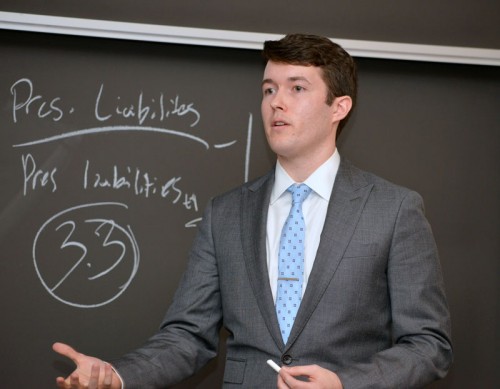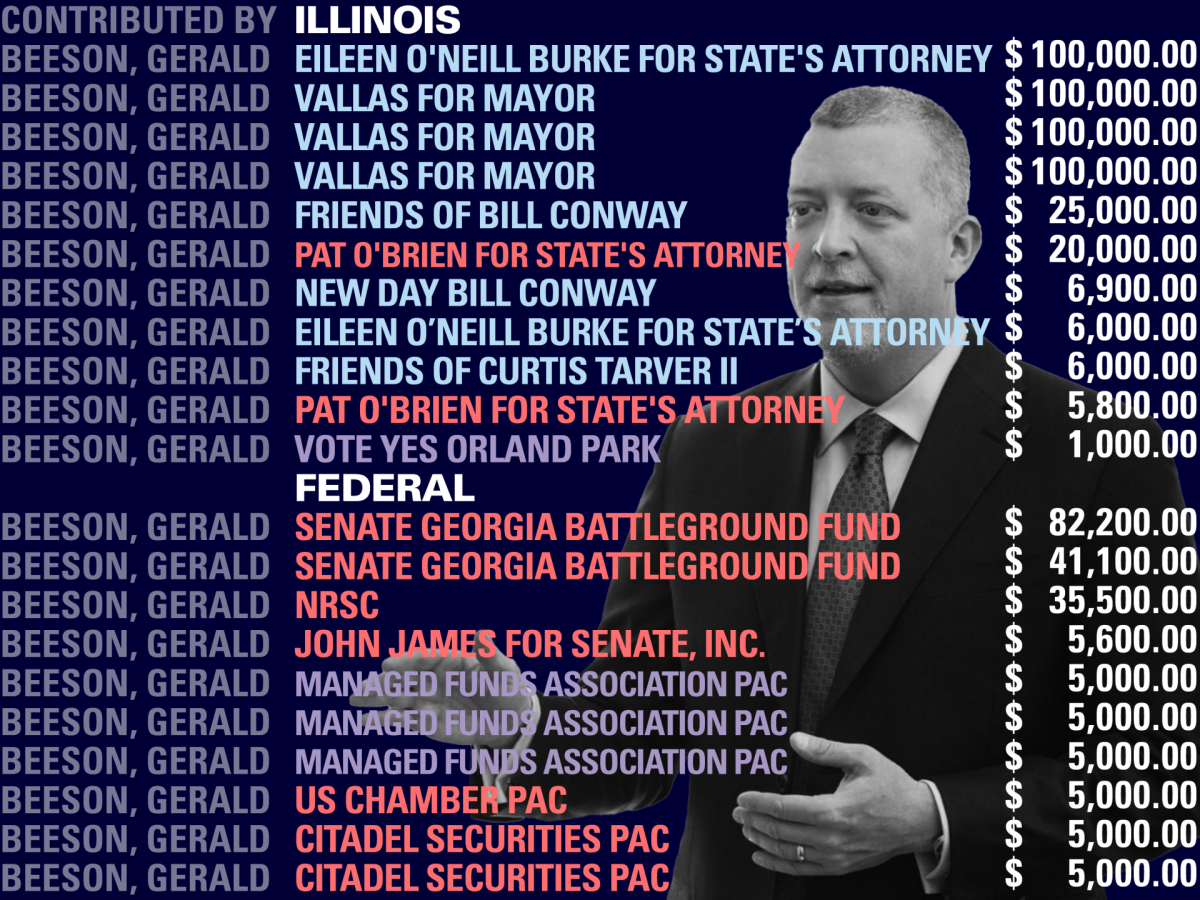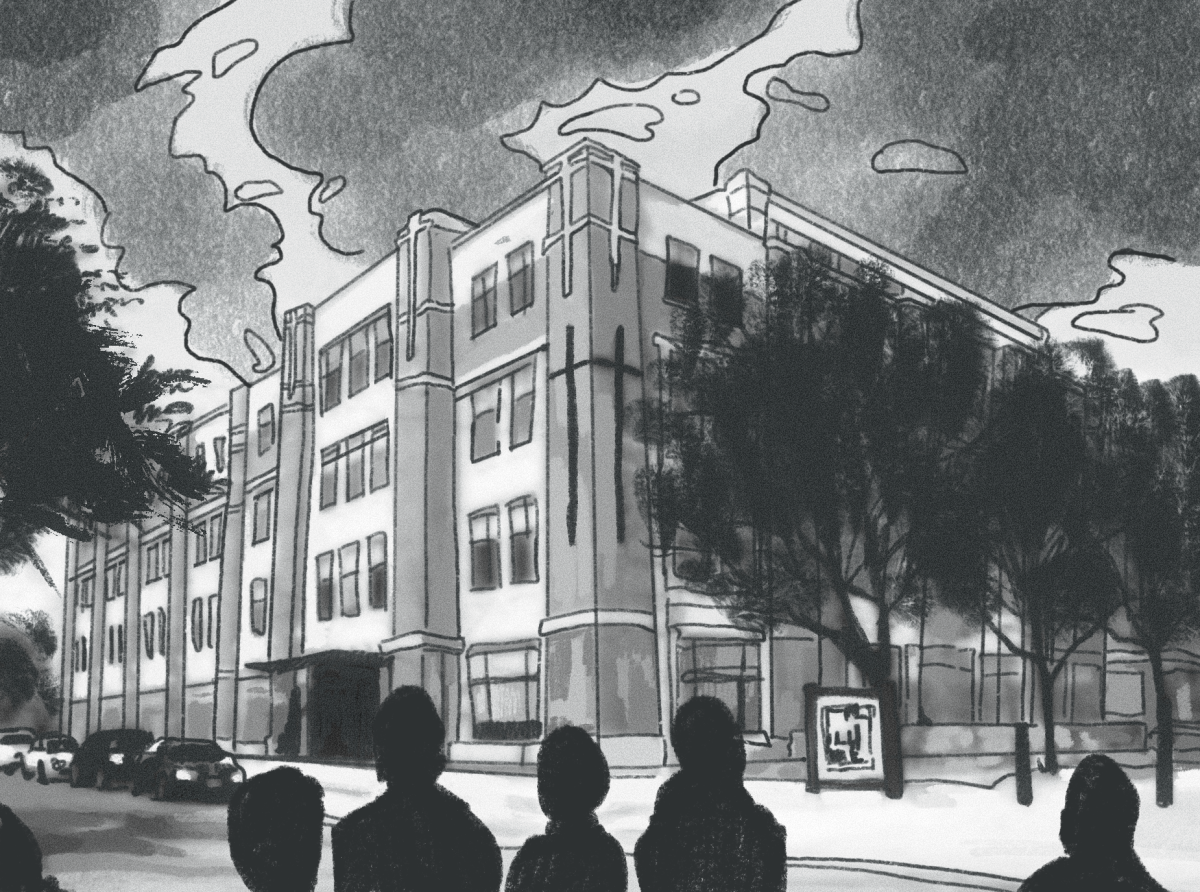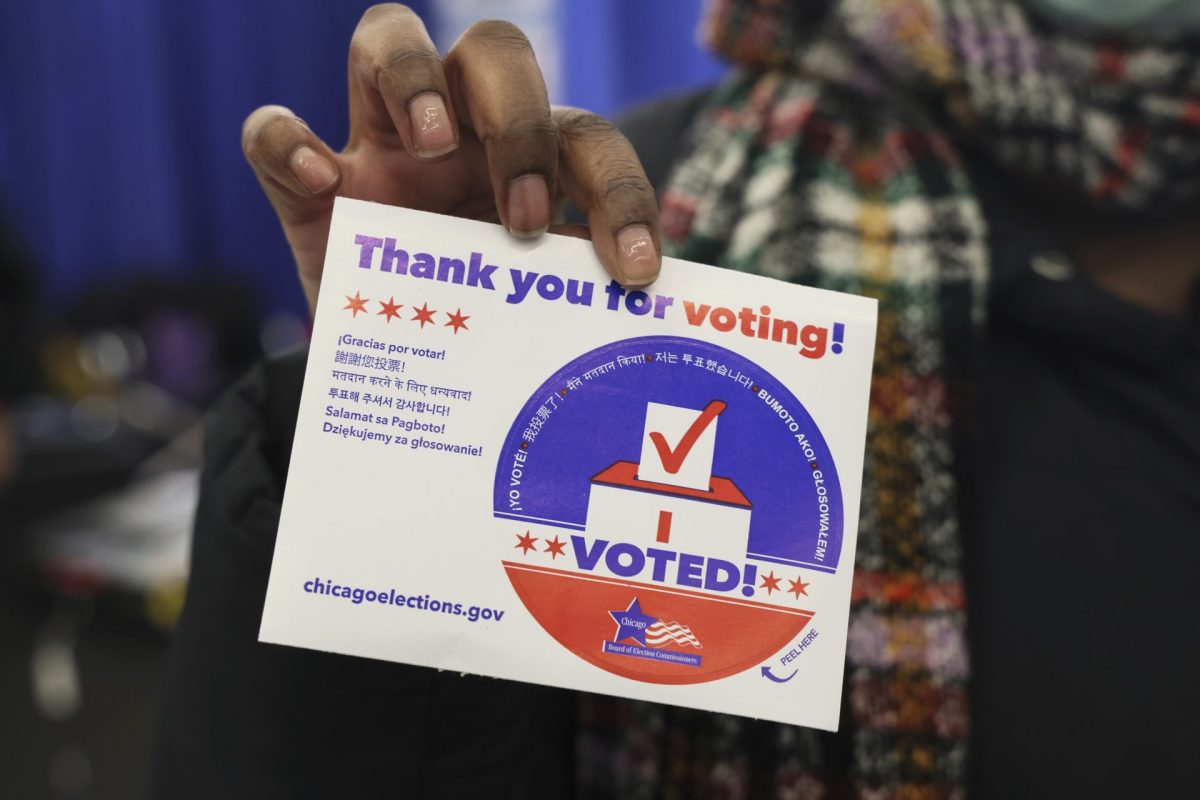
With experts stumped as to how to solve the the state’s pension crisis, DePaul invited its undergraduate business students to weigh in on the issue and offer their own solutions as to how to pay off underfunded pension plans.
On April 19, the Public Pension Crisis Student Case Competition, was held at DePaul’s Loop campus.
Five teams of undergraduate business students were brought in to present their solutions to the pension crisis before a panel of judges.
Each team had six months to prepare their presentations, making sure that every law was read, statistic recorded, and budgets analyzed. Teams had 30 minutes to present a solution to a problem experts haven’t solved in a span of ten months. Naturally the solutions weren’t perfect.
But the competition was a way for students to offer ideas outside the framework of what experts are used to thinking in. The panel of judges was the experience. The truth behind skepticism, separating viable ideas from unrealistic ideas and reasonable figures regarding budget fixtures apart from imagined ones.
“That’s what we do here. We’re not just about graduate students; we’re also about undergraduate students,” Alexander Perry, an associate director at Richard H. Driehaus College of Business at DePaul, said. “Of course we threw them the most impossible topic in the world. There really is no clear solution. All the better for them to struggle with it, because if it was an something easy then it wouldn’t be a learning experience,” .
The competition was held to inspire student and millennial participation in politics within their state.
Underfunded pensions have become the backbone of the state budget impasse, with $111 billion in unpaid pensions. Retirees who depend on their pensions feel the immediate effect, but what often is ignored is the burden placed on taxpayers.
In 2013, taxpayers accounted for 79 percent of the total pension contributions in Illinois, while government workers contributed 21 percent.
Competitor Luke Hamilton said the fault behind the pension crisis is the state.“They haven’t been paying their fare share, the employees have,” Hamilton said.
All five teams shared one common point: the pension crisis in Illinois is a result of the state failing to pay their share of contributions to the state pension funds.
“Don’t you want your tax dollars that you pay to go into your parks, your roads instead of old man geezer’s retirement home in Florida? The tax payer himself will be paying more but essentially the tax payer will be paying for his own pension,” Jay Choi, a competitor in the winning team, said.
The proposed plan to replace the current Defined Benefit Pension Plan was the Combined Contribution Plan. Under this plan, all the contributions made by taxpayers would be placed into a separate fund, free from the state, where pensioners would be free to do whatever they want with their money.
“If you’re a guy and you made $100,000 when you were working, you can make $80,000 every year for 17 years or until you die that’s paid by the state. Think about that; there’s a little south of a million people who are on this pension system. That’s almost 1 million people all making, let’s say 80,000 a year on average that aren’t working,” Choi said.
Although the numbers may not be feasible, the basic concept is changing pension plans so employees are held responsible for funding his or her own pension plan. The contribution made by the employer would ensure a surplus of money in the funds for certain situations that may require it, such as the current pension crisis and relieve stress on the state to pay off liabilities using limited funds.
The plan will only work if employers (state government) are held accountable to make their contributions.
“A lot of states have laws that say you have to have balanced budgets. But there are a lot of accounting tricks you can use in evaluating the amount of assets that you have compared to your liability,” Sebastian Vermaas, a competitor, said.
This might require more permanent structural changes as mentioned by the second place team.
“If you want to write about something, like really, we proposed term limits. Those guys sit in office, they hang out,” Hamilton said. “They have control over how their districts are drawn and who votes for them, so they’re incentivized to say ‘pension money, going to you guys.’ Once you start limiting where their districts are, and who’s voting for them, that incentive is gone.”
The competition was a way for students to offer ideas outside the framework of what experts are used to thinking in.
The panel of judges was the experience. They were forced to determine achievable plans from unrealistic plans and reasonable figures apart from imagined ones.
“I think one of the great things out of this is that the judges can extract something really good ideas out of all these presentations. The judges are then able to take these ideas and run with them in the real world,” Alexander Perry said.
First place winners were Choi, Lauren McDermott and Paul Kuligowski, followed by Hamilton, Michael Sherman, Doug Palzer and Sebastian Vermaas in second and Kaitlyn O’Shea, Connor Francesca, Darshan Kadmar and Nealkanth Patel in third.














Benjamin1969 • Apr 25, 2016 at 12:09 pm
This is a fabulous idea that should be implemented at colleges across the country. It would be very interesting to hear what solutions the students have for this issue, especially after they are reminded it will be they who will inherent a large chunk of these pension liabilities.
Patrick55 • Apr 25, 2016 at 12:02 pm
I would give them an “F”.
Why didn’t they consider bankruptcy?
WirePoints • Apr 24, 2016 at 4:26 pm
Great job, DePaul! Good way to get young people thinking about the problem.